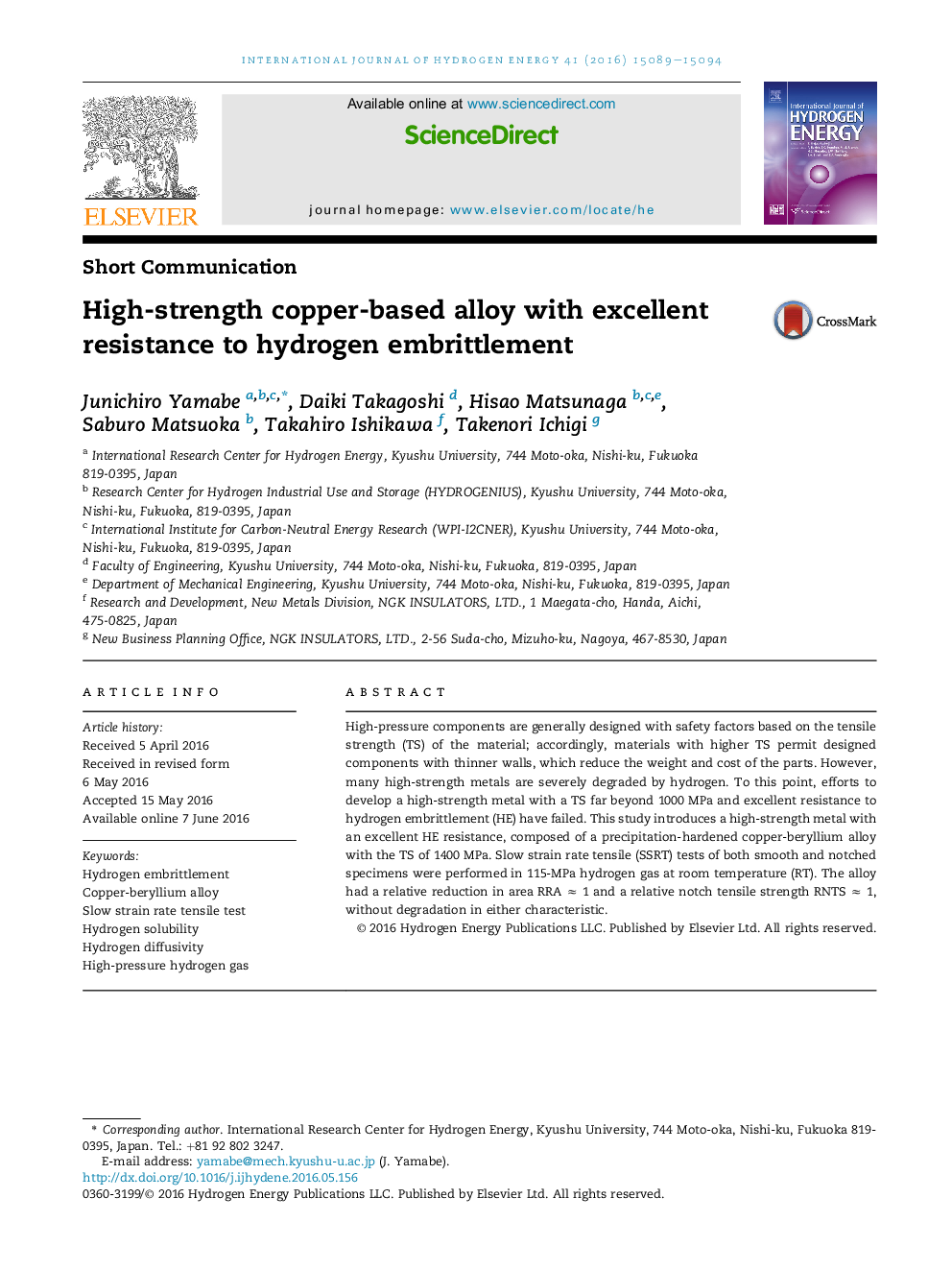| Article ID | Journal | Published Year | Pages | File Type |
|---|---|---|---|---|
| 1269383 | International Journal of Hydrogen Energy | 2016 | 6 Pages |
•Precipitation-hardened copper-beryllium alloy was tested.•The tensile strength of this alloy in air at room temperature was 1400 MPa.•Slow strain rate tensile test was performed in 115-MPa hydrogen gas.•No relative area or notch reduction was observed with hydrogen exposure.•Tested alloy shows excellent hydrogen embrittlement resistance and high-strength.
High-pressure components are generally designed with safety factors based on the tensile strength (TS) of the material; accordingly, materials with higher TS permit designed components with thinner walls, which reduce the weight and cost of the parts. However, many high-strength metals are severely degraded by hydrogen. To this point, efforts to develop a high-strength metal with a TS far beyond 1000 MPa and excellent resistance to hydrogen embrittlement (HE) have failed. This study introduces a high-strength metal with an excellent HE resistance, composed of a precipitation-hardened copper-beryllium alloy with the TS of 1400 MPa. Slow strain rate tensile (SSRT) tests of both smooth and notched specimens were performed in 115-MPa hydrogen gas at room temperature (RT). The alloy had a relative reduction in area RRA ≈ 1 and a relative notch tensile strength RNTS ≈ 1, without degradation in either characteristic.
